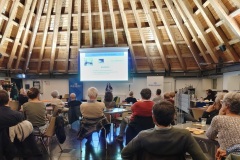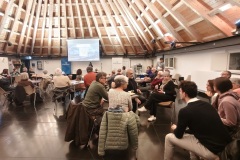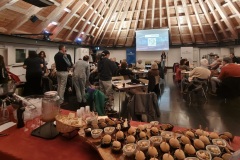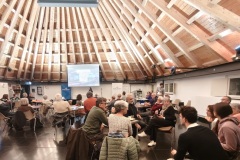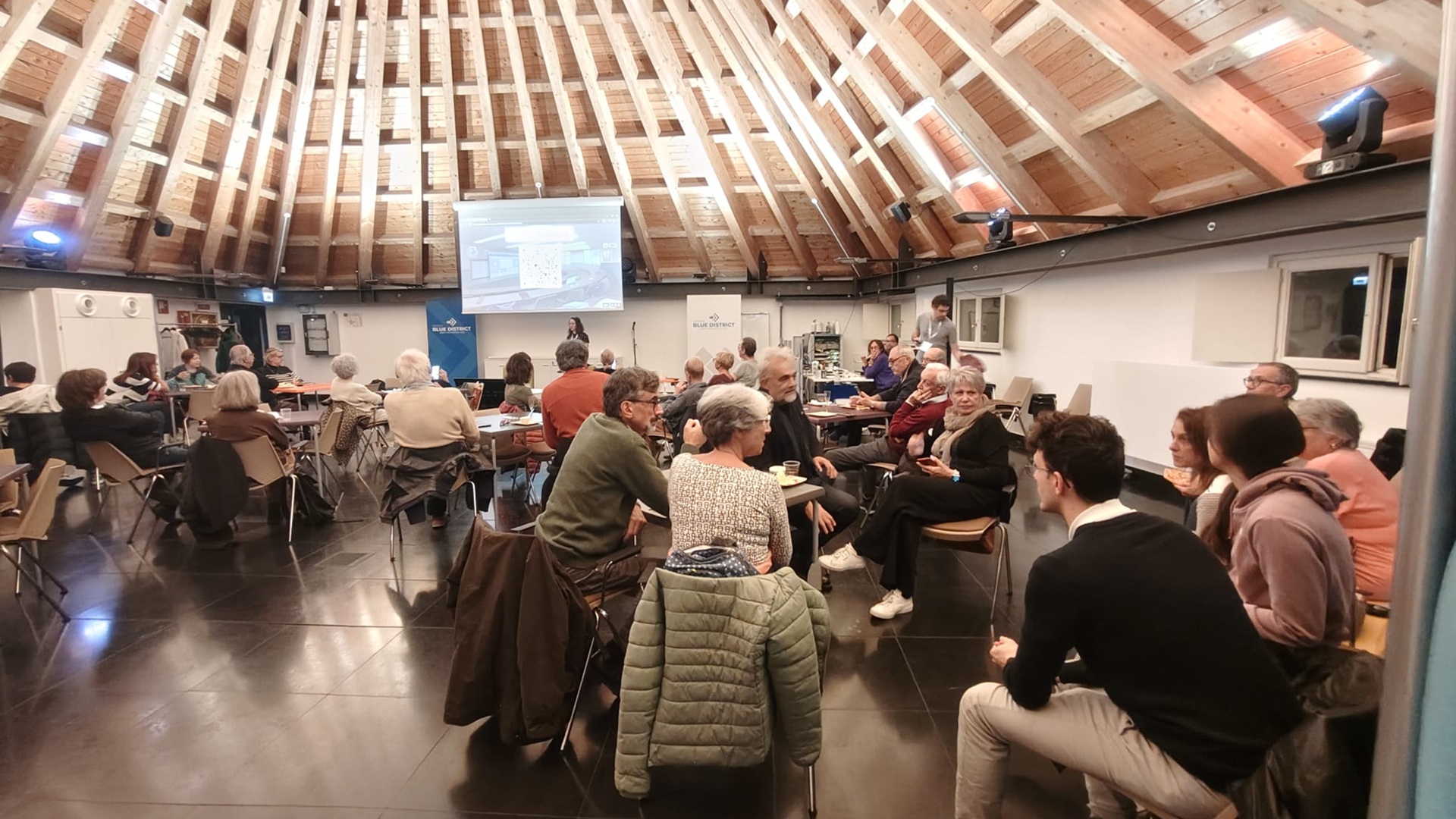
On Friday, October 31, 2025, the Genova Blue District hosted a new event in the AperiRAISE series, the scientific aperitifs organized by RAISE as part of the 2025 Festival of Science.
The meeting, titled “Artificial Intelligence as an Ally of Medicine: How the Future of Health Is Changing”, offered the public an opportunity to explore a highly topical subject in a convivial atmosphere, where science became a topic of conversation — much like a chat among friends at a café.
The evening’s speaker was Rosanna Turrisi, researcher at the Institute of Applied Mathematics and Information Technologies (IMATI) of the CNR, who guided participants on a fascinating journey through data, algorithms, and scientific discovery. With clarity and enthusiasm, Turrisi showed how artificial intelligence is already transforming the way medicine observes, understands, and treats diseases.
The discussion began with a simple yet crucial question: What happens when artificial intelligence enters the hospital? As Turrisi explained, it is not about robots replacing doctors, but about tools that assist them in their most delicate decisions. AI can analyze vast amounts of clinical data, detect signals invisible to the human eye, and suggest diagnoses and prognoses with remarkable speed. Yet, alongside these opportunities come new responsibilities: safeguarding privacy, ensuring data quality, and preventing biases that could lead to inequality.
During the aperitif, Turrisi illustrated concrete examples of AI applications in medicine, focusing in particular on neuroscience. Today, algorithms can support the diagnosis and prognosis of neurodegenerative diseases by identifying complex patterns in brain images or clinical data that often escape human observation.
A particularly engaging moment was dedicated to generative AI, one of the most promising frontiers of research. With its ability to create synthetic medical images, this technology expands datasets while protecting patient privacy and improving the accuracy of predictive models – an invaluable resource for personalized medicine and clinical research.
The audience, numerous and engaged, followed the conversation with great interest, asking questions and sharing reflections on the role of AI in contemporary society. The informal setting of AperiRAISE fostered open dialogue and curiosity, turning a complex topic into an accessible and stimulating experience.
At the end of her talk, Rosanna Turrisi remarked: “These moments of exchange are always rewarding, especially when there’s such active participation and a friendly, stimulating atmosphere. I hope this discussion helped strengthen trust in the use of AI in medicine and encouraged a better understanding of the roles of both doctors and researchers.”
The evening concluded with applause and new questions, a sign of growing public interest in a subject that unites ethics, innovation, and the future of healthcare. Once again, AperiRAISE confirmed the strength of a format capable of taking science out of the laboratory and into everyday life – building bridges between research, technology, and community.


